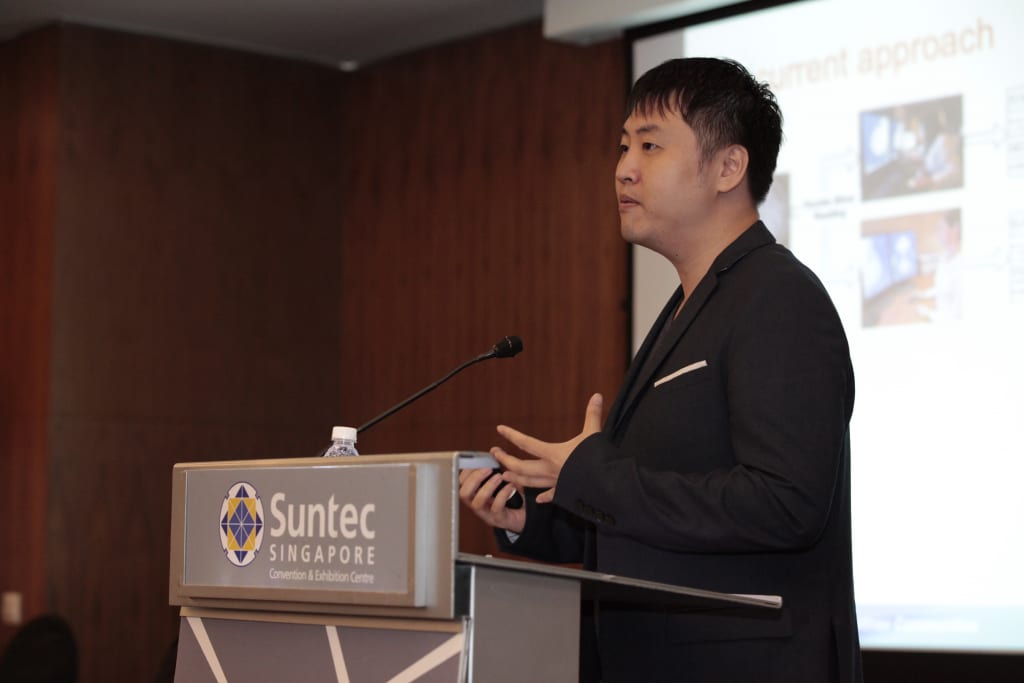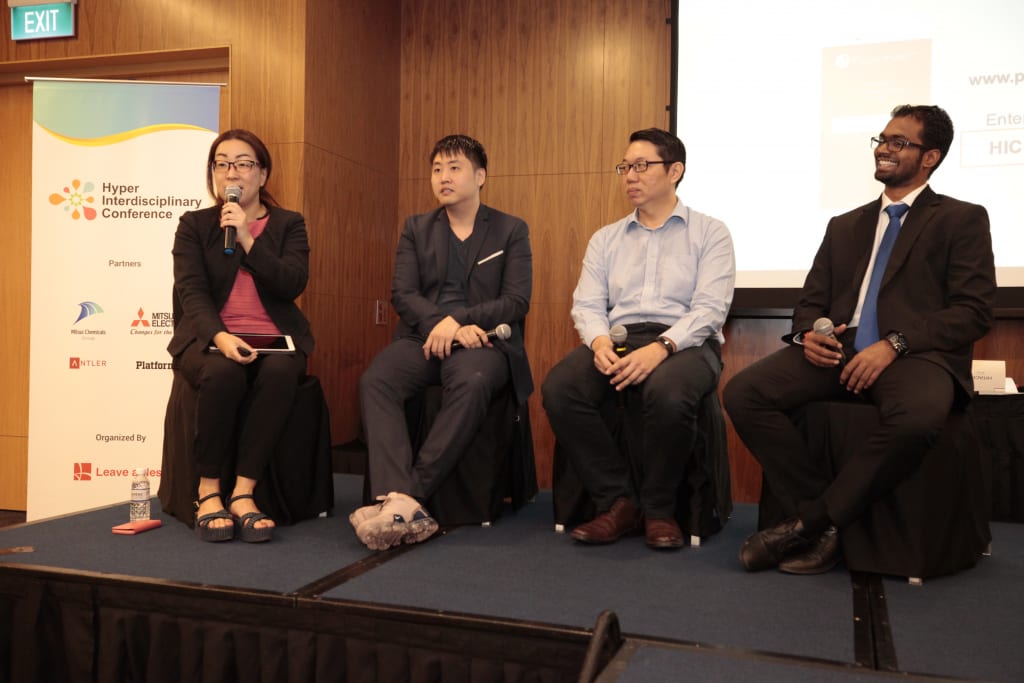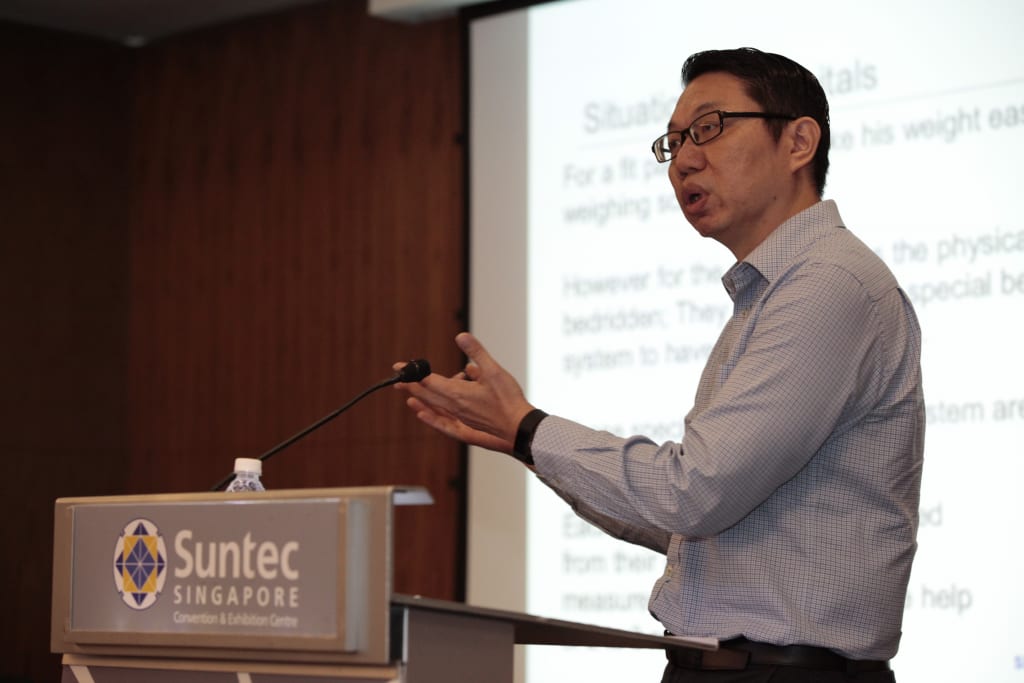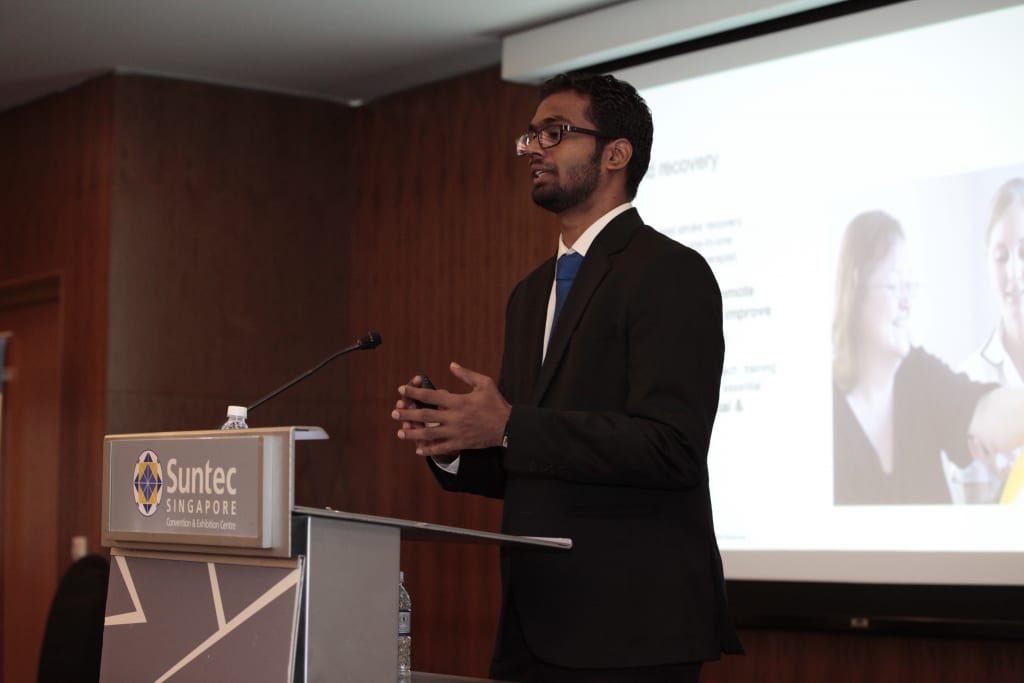HIC Singapore – How will AI and big data synergise with Medical Technology?

Many industries have been impacted by AI and big data in the recent years. For example in 2016, a team of GovTech data scientist famously deduced the issue behind the train breakdowns in the circle line by analysing the data provided by SMRT. So one of the questions we wanted to answer in HIC Singapore is how can AI and big data be used to boost the medical technology world!
Keynote speaker: Assistant Professor Mengling ‘Mornin' Feng

It all started with an online competition challenge: Create an AI system to read mammograms and identify potential breast cancer in people with a success rate on par with a team of current day radiologist. With the support behind this competition from the likes of IBM, U.S. FDA and U.S. White House Office of Science and Technology Policy amongst others, assistant professor Feng and his team decided to take up the challenge to train a machine to identify breast cancer.
With the experience of the competition behind him, Assistant Professor Feng shared how AI and Big Data can be teamed together with medical experts to give more accurate diagnosis of medical technology to save lives.
Mr Hong Ling Tim shared the overview of Republic Polytechnic's SMART Engineering Technology Centre (SETC) – which has generated multiple proof-of-concept (POC) projects and technologies. The 3 main areas that Mr Hong has touched on is Republic Polytechnic's state of the art expertise in Industry 4.0, urban sustainability and healthcare application in the medical technological side.
Some of the technologies that Mr. Hong had went through includes the Patient Weight Monitoring System that can be used to do live weight measurements of a bedridden patient and potentially predict abrasions and bruises in the elderly and Ambidexter to help children with autism to train their motor skills.
Mr. Amar from the startup Articares encapsulated what happens when AI meets medical knowledge meets engineering expertise: a technological advanced solution in medical technology is born.
With the aim to aid the ageing population suffering neurological injuries such as stroke in the world, Mr Amar from Articares shared how his company's technology can be used to to help hospitals, communities and homes to diagnose and rehabilitate patients. With a realistic touch, Mr. Amar envisions that his company's technology will not eliminate the need of a human rehabilitator but rather, assist them in the more fundamental repetitive task – freeing up time to allow deeper and more meaningful treatment from the human rehabilitator.
Panelist discussion: Assistant Professor Feng, Mr. Hong Ling Tim, Mr Amar Balajee and Dr. Kihoko Tokue.

How will AI impact the medical tech industry? Dr. Kihoko Tokue from Leave a Nest moderates this important question that many people are worried about. Will AI eventually replace humans in the medical field? Can AI be used to solve the existing medical problems in society? How can AI and big data be used to synergise with existing technologies to help people in the world? Coming with different backgrounds and perspectives, the panelist shared that the human touch and care will always stay paramount in the medical field. How AI will probably be used in the medical field is to play a huge role in assisting people in mundane repetitive activities and diagnosis.


